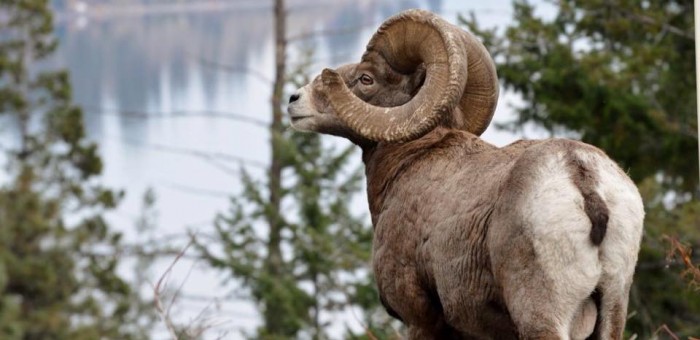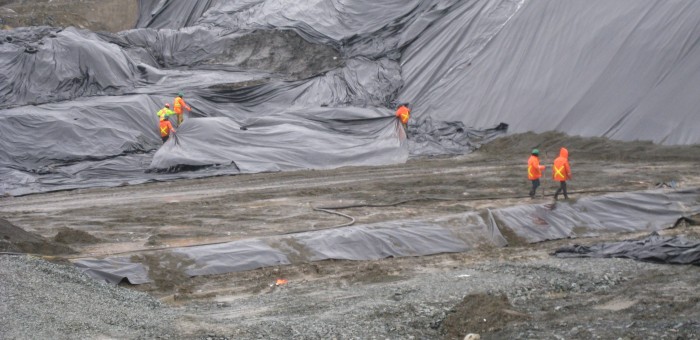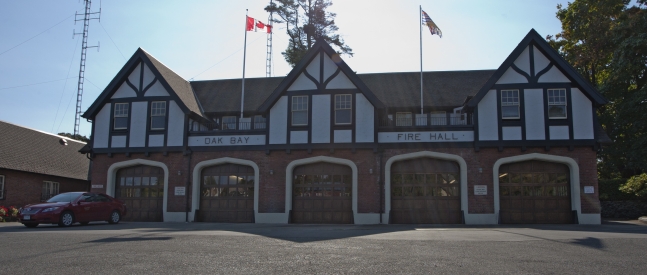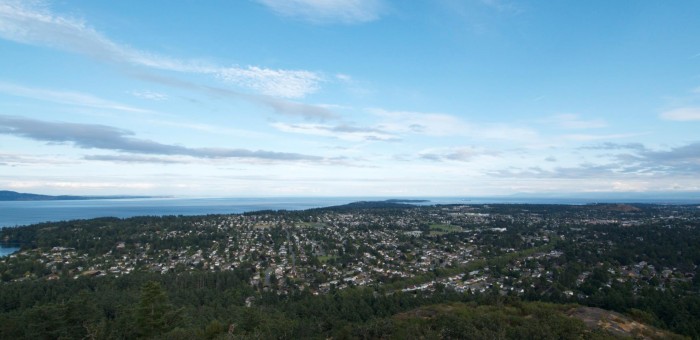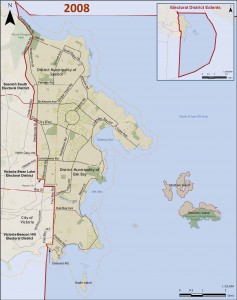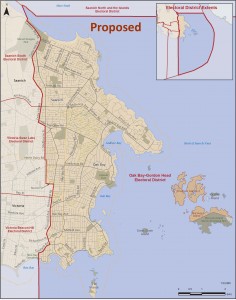Community Blog
Multiculturalism Grants Program
Community Organizations throughout British Columbia have until December 13th, 2015 to apply for the Provincial Government’s Multiculturalism Grants Program.
Offered by the Ministry of International Trade and Responsible for Asia Pacific Strategy and Multiculturalism and administered by the Gaming Policy and Enforcement Branch, Multiculturalism Grants support cultural expression and anti-racism programs and projects that raise awareness about or enhance B.C.’s multicultural identity.
Organizations can apply for a grant through two streams:
Stream A: Cultural Expression – Projects which raise awareness about B.C.’s rich multicultural identity through cultural events and/or resource tools. This could include festivals, community forums, cultural celebrations and materials that support positive expressions of culture and traditions in a community.
Stream B: Anti-racism – Projects that challenge racism and hate, especially those that utilize a collaborative and community approach. This could include community forums, public engagement sessions, interfaith dialogues, collaborative arts projects (dance, theatre, visual arts) and educational workshops that engage community members in addressing racism and hate.
For more information on the program and how to apply, please click here.
A Bill to Reduce Preferential Treatment of Non-Resident Hunters
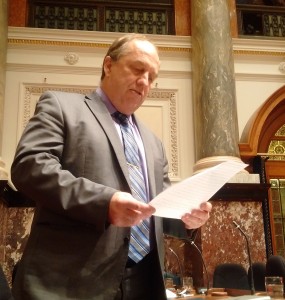 Today in the legislature I tabled a private members bill entitled: Wildlife Amendment Act (No. 2), 2015. The purpose of this Bill was to reduce the preferential treatment of non-resident hunters.
Today in the legislature I tabled a private members bill entitled: Wildlife Amendment Act (No. 2), 2015. The purpose of this Bill was to reduce the preferential treatment of non-resident hunters.
Limited entry hunting (LEH) is a lottery based management system used to organize the harvest of species in situations where there are too few animals and too many hunters. Currently the Wildlife Branch has different rules for resident and foreign hunters when it comes to obtaining LEH permits: Residents must enter a lottery draw, but foreigners (who are required to hire guide) can simply buy their way in. By eliminating the minister’s discretion to make separate rules for each group, this bill requires ALL hunters to enter a lottery for their LEH tags, as is done in other jurisdictions.
As it currently stands, residents may enter a lottery year after year and still not get drawn, while a non-resident can buy his or her way in every year if they want. This bill seeks to ensure certain groups do not have unfair access to LEH permits.
While people may wonder why we need a lottery system for non-residents when they are already restricted by the allocation split, it is worth noting that the split between permits allocated for resident and non-resident hunters is as high as 60% – 40% for some species. By comparison, Alberta sets non-resident allocations between 2-7 percent with a maximum of 10 percent and Washington State has limited non-resident wildlife allocations to approximately 5 percent. Non-resident hunters in B.C. are already getting a bigger share here than anywhere else in North America – and they are pay significantly less too. A non-resident hunter coming to B.C., for example, can buy a moose tag directly for $250.00 Canadian. In Washington State they would have to enter a draw and if their application got randomly selected they would have to pay $1,652.00 USD.
The price and availability of hunting permits is, of course, influenced by animal abundance and hunter demand. In B.C. compared to other jurisdictions in North America, however, they also seem to favour guide outfitters and their non-resident clientele over resident hunters. I tabled this bill today to reduce some of that unfair legislation.
Below I provide a video of my introduction along with its transcript. At the end i also include a copy of the proposed bill
Video of Bill Introduction
Text of Bill Introduction
A. Weaver: It’s my pleasure to introduce this bill — which, if enacted, would remove the minister’s ability to designate and exempt classes of applicants from having to enter lotteries or other methods of random selection when seeking limited-entry hunt permits. If enacted, these amendments would require all hunters to enter draws for their limited-entry hunt permits, regardless of resident, non-resident or non-resident alien designation, as is done in other jurisdictions.
As it currently stands, local hunters have to enter a lottery if they want to harvest an animal managed under the limited-entry hunt system, but out-of-province hunters can simply buy a permit for the same species and management unit area. Foreign hunters coming to B.C. already enjoy cheaper permits and greater allocation percentages than nearly every other jurisdiction in North America. It’s clearly unfair that they can buy their way into limited-entry hunts year after year, when British Columbians are left entering lotteries in the hopes of being granted the opportunity to harvest a public good in their home province.
The limited-entry hunt system is an important management and conservation tool. Its designation through the lottery system should be implemented across the board, mirroring other jurisdictions that require non-resident hunters to enter limited-entry hunt lotteries. Like every state in America, this legislation envisions a separate draw for local and out-of-province allocations.
I look forward to second reading of this bill. I move that this bill be placed on the orders of the day for second reading at the next sitting of the House.
Text of Bill M230
Wildlife Amendment Act (No. 2), 2015,
THE WILDLIFE ACT [RSBC 1996] Chapter 488. The Act is amended by:
Section 16 of the Act is amended by striking out sections 16 (1) (b.1) and 16 (3)
Limited entry hunting authorization
16 (1) The minister, by regulation, may
(a) limit hunting for a species of wildlife in an area of British Columbia,
(b) provide for limited entry hunting authorizations to be issued by means of a lottery or other method of random selection among applicants,
(b.1) provide for exceptions that the minister considers appropriate to the random selection among applicants in conducting a lottery or other method of random selection among applicants under paragraph (b), and
(c) do other things necessary for the purposes of this section.
(2) An application fee collected under a lottery or other method referred to in subsection (1) must be paid into the general fund of the consolidated revenue fund.
(3) In making regulations under subsection (1), the minister may define classes of applicants and make different regulations for different classes of applicants.
Appealing for Emergency Debate on Contaminated Soils in Shawnigan Watershed
Today in the Legislature I rose, pursuant to Standing Order 35, to call for an emergency debate on the recent failure of the contaminated soil site storm water containment and clarification system at the South Island Aggregates/Cobble Hill Holding/South Island Resource Management operations.
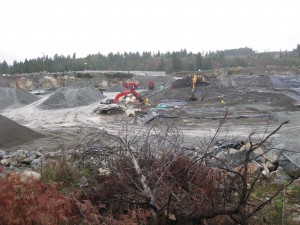 There are two active cases before the BC Supreme Court concerning the process that led to the granting of the permits by the Ministry of Environment. The CVRD is seeking to have its land-use bylaws upheld, as this is not a permitted land use for this location. The Shawnigan Residents Association has filed a Judicial Review of the decision by the Environmental Appeal Board to uphold the permit, and they have brought forward new and very important information that was not considered by the Environmental Appeal Board. Local residents are desperate to protect their water supply, and last week two people were arrested outside of the site.
There are two active cases before the BC Supreme Court concerning the process that led to the granting of the permits by the Ministry of Environment. The CVRD is seeking to have its land-use bylaws upheld, as this is not a permitted land use for this location. The Shawnigan Residents Association has filed a Judicial Review of the decision by the Environmental Appeal Board to uphold the permit, and they have brought forward new and very important information that was not considered by the Environmental Appeal Board. Local residents are desperate to protect their water supply, and last week two people were arrested outside of the site.
Below I offer an extract from Hansard where I provide rationale for why I believed that holding such a debate was of urgent public importance. Please note that in a postscript below I reproduce the Speaker’s ruling.
Text of my Rationale
A. Weaver: I rise pursuant to Standing Order 35. As advised in Standing Order 35, I gave the Chair notice, and I have provided a written statement of the matter proposed to the Clerk.
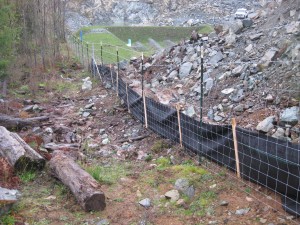 By leave, I move that this House do now adjourn to discuss a matter of urgent public importance — namely, an emergency debate concerning the recent failure of the contaminated soil site stormwater containment and clarification system at the South Island Aggregates — Cobble Hill Holdings — South Island Resource Management operations.
By leave, I move that this House do now adjourn to discuss a matter of urgent public importance — namely, an emergency debate concerning the recent failure of the contaminated soil site stormwater containment and clarification system at the South Island Aggregates — Cobble Hill Holdings — South Island Resource Management operations.
There were, in the past few days, at least two documented breaches of water bypassing the system into the Shawnigan potable water stream network. On November 13, Island Health issued a no-water use advisory “advising residents not to use water taken out of the lake from the south end of Lake Shawnigan, south of Butler Avenue and Verlon Road, due to suspected overflow of water from South Island Aggregates’ site.” This means that residents were being advised “not to use or draw water from the area of the lake for residential or commercial use, including bathing, personal hygiene, drinking and food preparation.”
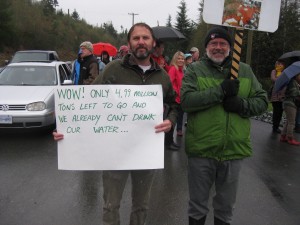 This morning I visited the area today to witness many scores of residents of Shawnigan Lake standing along the roadside desperately seeking government action. Despite the fact that members opposite think this is a joke, I walked around the facility this morning, and there is water running off that facility today in violation of the permits that they have been granted. Yet we have the side opposite thinking this is somehow a big joke.
This morning I visited the area today to witness many scores of residents of Shawnigan Lake standing along the roadside desperately seeking government action. Despite the fact that members opposite think this is a joke, I walked around the facility this morning, and there is water running off that facility today in violation of the permits that they have been granted. Yet we have the side opposite thinking this is somehow a big joke.
Last week a steady stream of trucks brought in high-sulfur soils, further contaminated with hydrocarbons from the metallurgical coal activities that occurred at Pacific Coast Terminals in Port Moody. Five thousand people draw their drinking water from this lake, and 12,000 people live within the region.
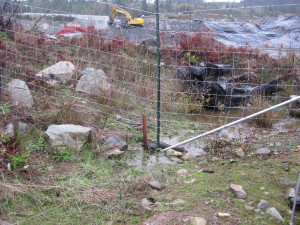 There are several court cases before that we will obviously not have time but could explore in debate, and local residents have documented many cases of non-compliance. And as of this morning, the Island Health water advisory remains in place.
There are several court cases before that we will obviously not have time but could explore in debate, and local residents have documented many cases of non-compliance. And as of this morning, the Island Health water advisory remains in place.
As should be clear, the need for this debate is urgent. Trucks are not delivering sediments today but will start again tomorrow. British Columbians are facing very real health impacts from a decision this government has made, and there has not been and will not be an opportunity for this issue to be debated appropriately other than within the scope of Standing Order 35.
Video
Postcript
Today the government house leader, Honourable M. de Jong spoke against having such an emergency debate by saying:
“I also, in fairness to the member, indicated that I would review his remarks from last day with respect to yesterday’s application for an emergency debate and will only say this: again, by virtue of the rules and precedents that apply around the application of section 35, I don’t believe the required threshold has been met in the submission made to the House, and thereto the application to invoke Standing Order 35 should, in my respectful opinion, be declined.”
The NDP neither supported nor opposed the emergency debate.
The Speaker subsequently ruled against having the debate.
Appreciation for Oak Bay Emergency Services
This evening I had the distinct honour of attending the Oak Bay Emergency Services Appreciation Banquet. I had the opportunity to extend deep appreciation and respect for the daily efforts and dedication of Oak Bay’s emergency services towards the health, safety and betterment of our community.
Text of my remarks
Good evening and thank you for the kind invitation for Helen and me to attend tonight’s banquet. We are honoured to be here with you.
Please let me join others here in thanking you, Oak Bay’s emergency service members, for your dedicated, professional and selfless service to our community — for being there in our times of need.
I am pleased to be here tonight to honour the work you do in the service of others. As citizens, we are reassured in knowing that you are there and ready to help us when needed. Dave Carroll’s song in the video (also shown below) we just watched says it all — you are everyday heroes. To quote from the lyrics:
When people in the world need savin’
The saviours who answer the call
Don’t get paid anymore for danger
Or get to pick the one’s they want
They just go to where the few will go
To maybe lay it all on the line
Just to do their job, do it one more time
Many of us may only have brief contact with you in the course of our lives, but the work you do has life-long impact on so many that you serve in the community.
You encounter and witness events in the course of your work that most of us will never see. I’m sure you sometimes wish some things could be unseen, but that is not your reality. There is often a heavy price to pay for your work – with shift work, emergency call-outs, interrupted family life and the inherent danger you face in the course of your duties. You are often dealing with emotionally difficult and highly intense situations. Instead of running from danger, you run courageously towards it and focus on the job you are trained to do.
To quote from Franklin D. Roosevelt: “Courage is not the absence of fear, but rather the assessment that something else is more important than fear”.
We are also very appreciative for all the work that you do to support our community. We see you at numerous community events, you fundraise for charity and undertake important liaison work in the schools and through education in the areas of prevention and safety.
Helen and I would like to extend our deep appreciation and respect for your daily efforts and dedication towards the health, safety and betterment of our community.
Dave Carroll’s Everyday Heroes Video
Electoral Boundaries Commission Report – Changes to OBGH
Today in the Legislature we continued debate on a motion to support the changes to electoral boundaries proposed by the British Columbia Electoral Boundaries Commission. The final report, dated September 24, 2015, recommends the addition of two new ridings (one in Richmond and one in Surrey) and sees changes to 48 of the current 85 electoral districts. The riding of Oak Bay – Gordon Head is slightly modified.
As shown in the two maps below, the boundary between Victoria-Beacon Hill and Oak Bay-Gordon Head shifts from Foul Bay Road to Richmond Avenue all the way from Haultain Street to Fairfield Road near the water. This brings the Royal Jubilee Hospital, the Victoria College of Art, Glenlyon-Norfolk Pemberton Woods campus and Margaret Jenkins Elementary (my alma mater) into the riding. The riding boundary then follows Fairfield Road until St. Charles Street where it turns, beside Ross Bay cemetery, until it reaches Dallas Road.
As noted in their Mission Statement:
In a rare moment of unanimity, every MLA in the legislature spoke, or is continuing to speak, in favour of the motion. I did as well today, and reproduce part of the video and text below.
2008 Proposed
Video of My Comments
Text of My Comments
A. Weaver: It gives me great pleasure to rise and speak to the motion before, the motion which is:
“Be it resolved that in accordance with section 14 of the Electoral Boundaries Commission Act, R.S.B.C. 1996, c. 107, the proposals contained in the Final Report of the Electoral Boundaries Commission tabled in the Legislative Assembly on September 28, 2015 be approved.“
Now, to remind those riveted to their television sets across British Columbia, section 14 of the Electoral Boundaries Commissions Act states the following:
“If the Legislative Assembly, by resolution, approves or approves with alterations the proposals of the commission, the government must, at the same session, introduce a Bill to establish new electoral districts in accordance with the resolution.“
I rise, along with every other member in this House, to speak in support of the resolution before us and, specifically, to thank, at the onset, the work done by the Electoral Boundaries Commission and, in particular, the Hon. Mr. Justice Thomas J. Melnick, the commission chair; Beverley Busson, the commissioner; and Keith Archer, Chief Electoral Officer and commissioner.
Now, this report was done, obviously, in an non-partisan manner. It is one that reflected the values of British Columbians in terms of trying best to put their needs and interests first and foremost in the setting of electoral boundary limits
I represent the riding of Oak Bay–Gordon Head, a riding that, under these proposed changes, would expand ever so slightly to an area of 330 square kilometres with a 4.8 percent deviation above the provincial average in terms of population, and the population would be 55,689.
Oak Bay–Gordon Head is 330 square kilometres because it contains quite a number of islands off the shore, and I must confess to being remiss to visiting these islands frequently. Trial Island, the Chatham Islands, Discovery Island, Griffin Island, Great Chain Island…. There’s a number of these islands which are within the electoral boundary, and they carry over from before. Very sparsely populated. Trial Island has a lighthouse keeper. Chatham Islands — a First Nations reserve — the last long-time resident recently moved off that. And Discovery Island is largely a marine park. Nevertheless, I do represent these ridings as well as the entire district of Oak Bay contained within the boundary and a substantial component of Saanich.
Now, in the capital region, the proposed changes for my riding are subtle. They’re subtle, and they come at the expense with respect to my colleague in Victoria–Beacon Hill. The Electoral Boundaries Commission, in reflecting upon the boundary changes, really had one of two changes that it could make consistently in order to actually bring our population number up, which I recognize has gone down a little bit.
One was near Mount Doug, where, along Cedar Hill Road, there’s a small subdivision towards the north side that could have been brought in. Historically, this was part of the riding when the Hon. Ida Chong was the MLA representing the region, but in previous reports it got taken out. And the other, which, frankly, I think, is more supported, is to continue the natural divide between Victoria–Beacon Hill and Oak Bay–Gordon Head along Richmond Road.
The reason why I say it’s a natural divide is because there was this very odd little corner by Jubilee Hospital that, frankly, confused the voters, because this little corner in Oak Bay–Gordon Head was shared by the member for Victoria–Swan Lake, the member for Victoria–Beacon Hill and my riding. In fact, it was not uncommon for constituents in Oak Bay–Gordon Head to get electoral information from constituents in Victoria–Beacon Hill and vice versa, because it was this little odd corner in the riding that has been corrected in this.
Oak Bay–Gordon Head is very proud to bring the Royal Jubilee Hospital back into our riding. It’s a natural home for the riding because so many constituents live nearby it and work nearby it. We get to continue down Richmond Road. We now bring the Victoria College of Art — another natural home for Oak Bay–Gordon Head, the Victoria College of Art — and another high school, making us, in Oak Bay–Gordon Head, I would reckon, probably the most high-school-rich, university-rich, college-rich riding in the province.
With the inclusion now of the senior school of Glenlyon Norfolk, we now have, in Oak Bay–Gordon Head, three public high schools: the brand-new Oak Bay, Lambrick Park — the school my daughter graduated at — Mount Doug, St. Michael’s University School and now Glenlyon as well. Five high schools. But on top of that, we also have Camosun College, which is right on the boundary there of Richmond Road, and the University of Victoria. And we have a diversity of other colleges, including the Victoria College of Art and the Canadian Centre for the Performing Arts. We have a number of elementary schools, some of them private, some of them not.
We have Maria Montessori, an additional high school that actually, this year, is graduating its first grade 12 class. It used to just be K to 7, but now it is…. So that would make us three private schools, three public schools, a college and a university, and we’re very proud to bring the hospital into our riding as well.


